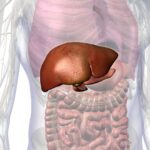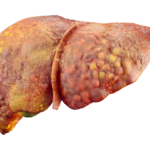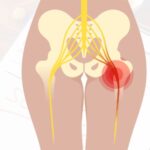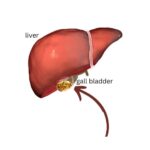Obesity: Effective Strategies for Lasting Weight Loss
By Homeopathic Dr. Basharat Ali
Obesity is a growing concern in today’s fast-paced world, leading to numerous health complications. While modern medicine offers various solutions, homeopathy provides a holistic approach to managing obesity effectively. In this blog, we will explore effective strategies for lasting weight loss, focusing on homeopathic remedies, lifestyle changes, and natural treatments.
Understanding Obesity
Obesity is defined as excessive body fat accumulation that poses a risk to health. It is often measured using the Body Mass Index (BMI), where a BMI of 30 or higher indicates obesity. Factors contributing to obesity include poor diet, lack of physical activity, genetics, and underlying health conditions.
The Role of Homeopathy in Weight Management
Homeopathy is a natural form of medicine that works by stimulating the body’s self-healing processes. Unlike conventional treatments, homeopathy addresses the root cause of obesity rather than just the symptoms. It offers individualized treatment plans based on a person’s constitution, emotional state, and specific symptoms.
HOW MANY TYPES OF OBESITY .
Obesity can be classified into several types based on different factors such as fat distribution, underlying causes, and the nature of the condition. Here are some common classifications:
1. Based on Fat Distribution
- Android Obesity (Apple-shaped): Fat is primarily distributed around the abdomen and upper body. This type is more common in men and is associated with a higher risk of cardiovascular diseases and type 2 diabetes.
- Gynoid Obesity (Pear-shaped): Fat is primarily distributed around the hips, thighs, and buttocks. This type is more common in women and is associated with a lower risk of cardiovascular diseases but may lead to joint issues.
2. Based on Underlying Causes
- Dietary Obesity: Caused by excessive calorie intake, poor diet, and lack of physical activity.
- Genetic Obesity: Resulting from genetic factors that influence metabolism, appetite, and fat storage.
- Endocrine Obesity: Caused by hormonal imbalances, such as hypothyroidism or Cushing’s syndrome.
- Psychological Obesity: Linked to emotional eating and psychological factors such as stress, depression, or anxiety.
- Medicamentous Obesity: Caused by certain medications that lead to weight gain as a side effect, such as steroids, antidepressants, or antipsychotics.
3. Based on Severity (BMI Classification)
- Class 1 (Mild Obesity): BMI 30–34.9
- Class 2 (Moderate Obesity): BMI 35–39.9
- Class 3 (Severe or Morbid Obesity): BMI 40 or higher
4. Based on Metabolic Health
- Metabolically Healthy Obesity: Individuals who are obese but do not exhibit the typical metabolic issues like insulin resistance, high blood pressure, or abnormal cholesterol levels.
- Metabolically Unhealthy Obesity: Individuals who are obese and have associated metabolic complications, increasing their risk of cardiovascular diseases and type 2 diabetes.
5. Childhood vs. Adult-Onset Obesity
- Childhood Obesity: Obesity that begins during childhood and can lead to long-term health issues.
- Adult-Onset Obesity: Obesity that develops in adulthood, often due to lifestyle factors such as poor diet and lack of exercise.
Each type of obesity requires a different approach to treatment and management, emphasizing the importance of personalized care.
HOW MUCH PERCENTAGE PEOPLE ARE AFFECTED BY OBESITY
As of recent global data, approximately 13% of the world’s adult population is affected by obesity. This figure includes around 11% of men and 15% of women worldwide. The prevalence of obesity has nearly tripled since 1975, making it a significant public health issue.
In some countries, particularly those with higher incomes, the rates of obesity are even higher. For example, in the United States, over 40% of adults are classified as obese. Obesity rates also vary significantly by region, socioeconomic status, and age group.
It’s important to note that these percentages represent global averages, and the prevalence of obesity can be much higher or lower in specific countries or regions. Additionally, childhood obesity is also on the rise, with an estimated 6% of girls and 8% of boys globally being affected.
HOW MUCH WEIGHT DEFINED AS A OBESITY .
Obesity is typically defined based on Body Mass Index (BMI), which is a measure of body fat based on weight in relation to height. The general classification for obesity is as follows:
- Overweight: BMI of 25 to 29.9
- Class 1 (Mild) Obesity: BMI of 30 to 34.9
- Class 2 (Moderate) Obesity: BMI of 35 to 39.9
- Class 3 (Severe/Morbid) Obesity: BMI of 40 or higher
To calculate BMI:
[ \text{BMI} = \frac{\text{Weight in kilograms (kg)}}{\text{Height in meters (m)}^2} ]
For example, a person who is 1.75 meters tall and weighs 95 kg would have a BMI of:
[ \text{BMI} = \frac{95}{1.75^2} = 31.02 ]
This BMI of 31.02 falls into the Class 1 (Mild) Obesity category.
Weight Examples:
- Height: 1.60 meters (5’3″)
- Obesity threshold (BMI 30): 77 kg (170 lbs)
- Severe Obesity threshold (BMI 40): 102 kg (225 lbs)
- Height: 1.75 meters (5’9″)
- Obesity threshold (BMI 30): 92 kg (203 lbs)
- Severe Obesity threshold (BMI 40): 123 kg (271 lbs)
- Height: 1.85 meters (6’1″)
- Obesity threshold (BMI 30): 103 kg (227 lbs)
- Severe Obesity threshold (BMI 40): 137 kg (302 lbs)
These examples illustrate how the weight considered as obesity varies depending on height.
Key Homeopathic Remedies for Obesity:
- Calcarea Carbonica: This remedy is often recommended for individuals with slow metabolism, excessive sweating, and a craving for sweets and eggs. It is particularly effective for those who gain weight easily and feel fatigued after minimal exertion.
- Natrum Mur: Suitable for individuals who tend to gain weight around the abdomen, this remedy helps those who are emotionally sensitive, suffer from water retention, and have a craving for salty foods.
- Lycopodium: Ideal for those with digestive issues, bloating, and a strong desire for sweets and starchy foods. It is beneficial for people who experience weight gain primarily in the lower body.
- Antimonium Crudum: This remedy is useful for individuals who overeat, especially when they are emotionally upset. It helps in regulating appetite and reducing cravings for unhealthy foods.
- Nux Vomica: Often prescribed for individuals who lead a sedentary lifestyle, indulge in rich, spicy foods, and have a tendency to overeat. It aids in improving digestion and detoxifying the body.
DIET PALN FOR OBESITY.
Creating a diet plan for obesity requires a balanced approach that focuses on reducing calorie intake while ensuring nutritional adequacy. Below is a sample 7-day diet plan designed to support weight loss in individuals dealing with obesity. This plan emphasizes portion control, nutrient-rich foods, and regular meals to help manage hunger and boost metabolism.
7-Day Diet Plan for Obesity
Day 1:
- Breakfast:
- 1 bowl of oatmeal with almond milk, topped with berries and a sprinkle of chia seeds.
- 1 boiled egg.
- Green tea or black coffee (no sugar).
- Mid-Morning Snack:
- 1 apple or a small banana.
- A handful of almonds.
- Lunch:
- Grilled chicken breast (150g) with a large mixed salad (lettuce, tomatoes, cucumbers, carrots) and olive oil dressing.
- 1 small whole-grain roll.
- Afternoon Snack:
- Greek yogurt (low-fat) with a few walnuts.
- Dinner:
- Baked salmon (150g) with steamed broccoli and quinoa.
- 1 small pear.
- Evening Snack (optional):
- Herbal tea.
Day 2:
- Breakfast:
- Smoothie made with spinach, kale, banana, and almond milk.
- 1 slice of whole-grain toast with avocado.
- Mid-Morning Snack:
- 1 orange or grapefruit.
- Lunch:
- Turkey and avocado wrap with whole-grain tortilla, spinach, and tomatoes.
- Side of carrot sticks.
- Afternoon Snack:
- Hummus with sliced cucumber and bell peppers.
- Dinner:
- Stir-fried tofu with mixed vegetables (broccoli, bell peppers, mushrooms) and brown rice.
- A small green salad.
- Evening Snack (optional):
- A small handful of mixed nuts.
Day 3:
- Breakfast:
- Scrambled eggs (2 eggs) with spinach and tomatoes.
- 1 slice of whole-grain toast.
- Green tea.
- Mid-Morning Snack:
- 1 small apple.
- Lunch:
- Lentil soup with a side of mixed greens salad (light dressing).
- 1 small whole-grain roll.
- Afternoon Snack:
- Cottage cheese (low-fat) with sliced strawberries.
- Dinner:
- Grilled shrimp with a quinoa salad (quinoa, cucumbers, tomatoes, parsley, olive oil).
- Steamed asparagus.
- Evening Snack (optional):
- Herbal tea with a slice of lemon.
Day 4:
- Breakfast:
- Greek yogurt with granola (sugar-free) and mixed berries.
- 1 boiled egg.
- Mid-Morning Snack:
- Sliced apple with almond butter.
- Lunch:
- Grilled chicken salad with mixed greens, cherry tomatoes, cucumbers, olives, and feta cheese (light dressing).
- 1 small whole-grain pita.
- Afternoon Snack:
- Baby carrots with hummus.
- Dinner:
- Baked cod with roasted sweet potatoes and a side of steamed green beans.
- 1 small orange.
- Evening Snack (optional):
- A handful of almonds.
Day 5:
- Breakfast:
- Smoothie made with mixed berries, spinach, protein powder, and almond milk.
- 1 slice of whole-grain toast with peanut butter.
- Mid-Morning Snack:
- 1 small banana.
- Lunch:
- Quinoa and black bean salad with corn, bell peppers, and avocado.
- A small green salad.
- Afternoon Snack:
- Greek yogurt (low-fat) with a drizzle of honey and walnuts.
- Dinner:
- Grilled turkey breast with steamed vegetables (carrots, zucchini, and cauliflower).
- Brown rice.
- Evening Snack (optional):
- A small piece of dark chocolate (70% cocoa or higher).
Day 6:
- Breakfast:
- Oatmeal with sliced banana, walnuts, and a sprinkle of cinnamon.
- 1 boiled egg.
- Mid-Morning Snack:
- A handful of mixed berries.
- Lunch:
- Tuna salad with mixed greens, cucumbers, cherry tomatoes, and a light vinaigrette dressing.
- 1 slice of whole-grain bread.
- Afternoon Snack:
- Sliced cucumber and carrot sticks with hummus.
- Dinner:
- Grilled chicken with roasted Brussels sprouts and a side of brown rice.
- A small pear.
- Evening Snack (optional):
- Herbal tea.
Day 7:
- Breakfast:
- Scrambled eggs with diced bell peppers and onions.
- 1 slice of whole-grain toast.
- Green tea.
- Mid-Morning Snack:
- 1 orange or a handful of grapes.
- Lunch:
- Whole-grain pasta with tomato sauce, grilled chicken, and steamed spinach.
- A side of mixed greens salad.
- Afternoon Snack:
- Low-fat cottage cheese with sliced peaches.
- Dinner:
- Grilled salmon with quinoa and steamed broccoli.
- A small green salad.
- Evening Snack (optional):
- A handful of almonds or walnuts.
Additional Tips:
- Hydration: Drink plenty of water throughout the day, aiming for at least 8 glasses.
- Portion Control: Pay attention to portion sizes to avoid overeating.
- Regular Meals: Try to eat at regular intervals to keep your metabolism active and manage hunger.
- Exercise: Incorporate at least 30 minutes of moderate physical activity daily.
This diet plan is designed to provide balanced nutrition while helping reduce calorie intake, promoting weight loss. It’s important to consult with a healthcare professional or dietitian before starting any new diet plan, especially if you have specific health conditions or dietary needs.
Lifestyle Changes for Lasting Weight Loss
In addition to homeopathic remedies, certain lifestyle changes are essential for sustainable weight loss. Here are some tips:
- Balanced Diet: Opt for a diet rich in whole grains, fruits, vegetables, and lean proteins. Avoid processed foods, sugary drinks, and excessive fats.
- Regular Exercise: Incorporate at least 30 minutes of moderate exercise into your daily routine. Activities like walking, swimming, and yoga can help burn calories and improve overall fitness.
- Mindful Eating: Pay attention to hunger and fullness cues. Avoid emotional eating and practice portion control to prevent overeating.
- Adequate Sleep: Ensure you get 7-8 hours of sleep each night. Lack of sleep can disrupt hormones that regulate hunger and metabolism, leading to weight gain.
- Stress Management: Chronic stress can lead to weight gain by triggering unhealthy eating habits. Practice relaxation techniques like meditation, deep breathing, or hobbies that help you unwind.
The Importance of Consistency and Patience
Weight loss is a gradual process, and it’s important to remain consistent with your chosen strategies. Homeopathic remedies, combined with healthy lifestyle changes, can yield significant results over time. Patience is key; the focus should be on making sustainable changes rather than seeking quick fixes.





























































































I’d perpetually want to be update on new blog posts on this site, saved to fav! .
Very interesting topic, thanks for posting.
You have brought up a very good points, regards for the post.